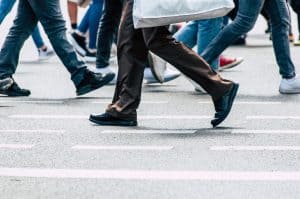A pedestrian accident can be a frightening experience. Knowing the right steps to take afterward can be crucial. First, ensure safety by moving to a secure spot, if possible, and check for injuries. Calling 911 is a priority to get medical help and have law enforcement document the incident. Gathering evidence is vital. Photos of the scene and contact information from witnesses can support any future claims. Seeking medical attention, even for minor injuries, can prevent complications later. Contacting Pedestrian Accident Lawyers helps in understanding legal rights and possible compensation. They guide you through insurance claims and legal proceedings. Finally, informing your insurance company about the accident without delay is important. Following these steps can make a difference in recovery. While the aftermath of an accident is challenging, taking these actions can provide clarity and support in a difficult time.
Immediate Actions to Take
After ensuring personal safety, it’s important to report the accident. This involves contacting local authorities so that an official report is made. This report serves as an essential document for any legal or insurance-related matters. According to the Texas Department of Transportation, reporting every vehicular accident to the police is crucial. Officers on the scene can help control traffic and prevent further incidents.
Documenting the Scene
Documentation plays an important role in any pedestrian accident case. Taking photos of the accident scene, including vehicle positions, road conditions, and any visible injuries, can be beneficial later. This evidence can provide clarity and support claims. An important step is to gather witness information. Note names and contact details of anyone who saw the accident. These individuals can offer valuable insights into what occurred.
Medical Evaluation and Care
Even if injuries seem minor, a medical evaluation is critical. Some injuries may not be immediately apparent. A healthcare professional can assess and document injuries, which can be vital for any legal proceedings. Furthermore, medical records serve as evidence of injury and treatment, supporting insurance claims. According to the Centers for Disease Control and Prevention, prompt medical attention can prevent long-term health issues and ensure a smoother recovery process.
Legal and Insurance Steps
Contacting Pedestrian Accident Lawyers can provide guidance on legal rights and responsibilities. Lawyers can help navigate complex insurance claims and any legal proceedings that may follow. Informing the insurance company about the accident is another key step. Provide them with accurate information and follow up as needed. Keeping a record of all communications with insurers can be beneficial for future reference.
Understanding Your Rights and Responsibilities
Knowing your rights as a pedestrian in Texas is essential. Pedestrians have the right to safe passage and drivers must yield in crosswalks. Understanding these rights can be important when discussing the accident with legal representatives or insurance companies. Keeping informed about the latest pedestrian laws and regulations in Texas can also help when navigating the aftermath of an accident.
Emotional and Psychological Considerations
The emotional impact of a pedestrian accident can be significant. It is common to experience anxiety, stress, or trauma following such events. Seeking emotional support through professional counseling or support groups can be beneficial. Addressing mental health is as important as physical health in recovery.
Comparison: Before and After Legal Guidance
| Aspect | Without Legal Guidance | With Legal Guidance |
| Understanding of Rights | Limited knowledge | Comprehensive understanding |
| Insurance Claims | Potential delays and rejections | Smoother and faster processing |
| Legal Proceedings | Overwhelming and complex | Organized and manageable |
Conclusion
Taking the right steps after a pedestrian accident in Texas is vital for recovery and justice. By ensuring safety, documenting the scene, seeking medical evaluation, and understanding legal rights, individuals can navigate the aftermath with confidence. Legal guidance can provide valuable support in complex situations, ensuring a fair outcome. Addressing both physical and emotional aspects of recovery is equally important. Through these actions, individuals can find clarity and support during a challenging time.







